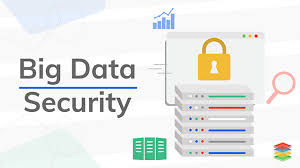Most of information security efforts focus on monitoring and data analysis with regards to events on networks, servers and other devices. Advanced big data analytics are applied to security monitoring. This enables broader as well as more in-depth analysis.
In order to capitalize on the competitive advantage of big data, organizations deployed analytics pipelines that exploit big data. Data Science Teams set up in environments that have limited budget or facilities regarding cyber security. This poses as a security nightmare that now organizations feel, should be taken seriously.
What are big data security analytics?
Big data security analytics and analysis is an extension of SIEM, CASB, PIM and related technologies. The difference (in terms of quantity) in the volumes and types of data analyzed result in qualitative differences in the types of information that has been extracted from security devices and applications. Hence, as a result, the qualitative difference in the possible alerts/alarms can be seen.
Challenges of big data security analytics?
1. Data governance
The objective of Data governance is about effectively managing the data in an organization. The key issues regarding this governance involve usability, availability, accuracy and cyber security. There is a need to define data management procedures.
2. Privacy-preserving analytics
Security analytics need to take care of user privacy. Big data tooling can face privacy issues due to hackers always planning new methods to threaten the privacy of every internet user. Higher the amount of online data, more difficult it is to ensure that data not missing something that can violate privacy.
3. Perimeter-based security
When perimeter-based security model is implemented, mission-critical applications are inside the secure network.
This is a common security model in big data installations as big data security tools lack perimeters. Secondly, there is no guarantee that network security people would be familiar with the specific requirements of security big data systems.
4. Non-relational data-stores
The NoSQL data stores have been popular for years. They are often deployed as part of big data installations as they have properties that are helpful in managing and analyzing large data sets.
However, ensuring cyber security for NoSQL databases is a challenge. Most of the effort put by managers of these databases focuses on providing features. With the market growing, lack of cyber security would be bad for business.
Many NoSQL products have key security features, but those can be compromised by permissive default options, or lack of knowledge with regards to effective configuration.
5. Configuration management
Big data deployments tend to be a plaid of emerging open source tools. Single applications are usually distributed across a network (cluster) of multiple physical machines. This makes configuration management difficult.
The configuration in a production big data analytics cluster is often spread across numerous, incompatible JSON, XML and text files. A further cause of concern in this regard is the complication when new machines are added to a cluster they need to be set up, patched and configured so that they do not create a security hole.
Remedies offered by big data security analytics
1. Smoothening data management
Processes should be defined for managing data and they need to be continuously monitored and evaluated on the basis of their effectiveness.
Some companies may have policies regarding a relational database centric world. Such policies include well-defined schemas, structured data with small amounts and mature reporting tools.
2. Protection of privacy
Encryption ensures data privacy. Homomorphic encryption allows analysis of encrypted data. Hence, data scientists would not need access to the underlying identifiable data.
3. Relational databases
Relational databases offer security as a critical component of their features.
To know more about the Big data analytics and other security analytics offered by us, contact us at enquiry@leosys.net or call us at 407-965-5509. Click here to and know more about our Security Operation Center.

